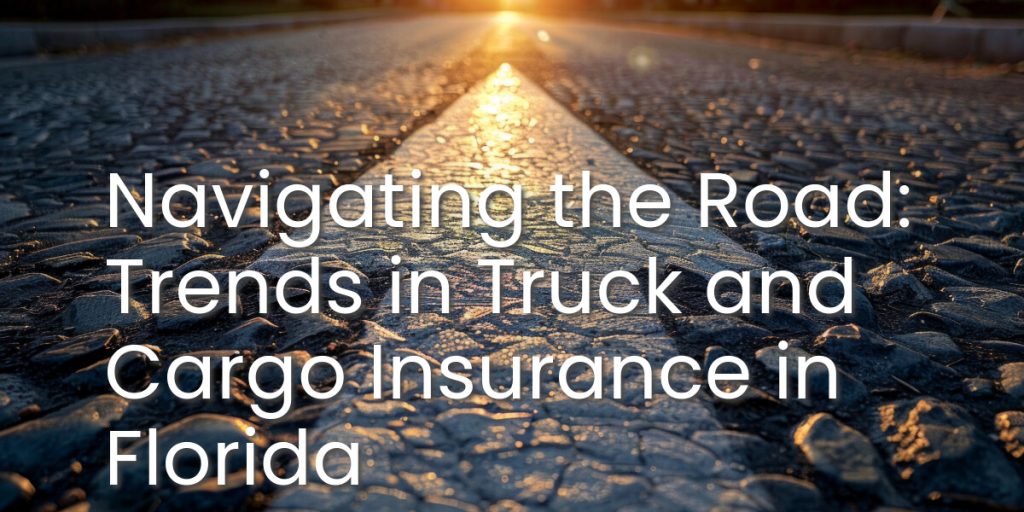
Navigating the Road: Trends in Truck and Cargo Insurance in Florida. In the vast landscape of the Sunshine State, where highways stretch like arteries connecting bustling cities and tranquil towns, the trucking industry plays a vital role in keeping commerce flowing smoothly. With the ever-evolving dynamics of transportation and logistics, the insurance landscape for trucks and cargo in Florida continuously adapts to new challenges and trends.
From Miami’s bustling ports to the distribution hubs of Jacksonville and the freight corridors that crisscross the state, trucking companies face unique risks and opportunities. Here, we explore some of the prominent trends shaping truck and cargo insurance in Florida.
1. Rising Demand for Cargo Insurance.
As e-commerce continues to surge, fueled by changing consumer habits and technological advancements, the demand for cargo insurance has skyrocketed. Florida is a crucial gateway for goods entering and exiting the United States, and cargo insurance is indispensable for businesses transporting valuable freight across the state’s highways and waterways.
2. Regulatory Compliance and Safety Standards.
Like every state, Florida imposes strict regulations on the trucking industry to ensure road safety. Compliance with these regulations is mandatory and crucial for mitigating risks and liabilities. Insurers increasingly emphasize the importance of adhering to safety standards, such as driver training, vehicle maintenance, and hours-of-service regulations, when underwriting trucking policies.
3. Technological Innovations in Risk Management.
Advancements in telematics and fleet management technologies have revolutionized risk management in the trucking industry. From real-time vehicle performance monitoring to predictive analytics for accident prevention, insurers are leveraging these technologies to offer more tailored and cost-effective insurance solutions to trucking companies operating in Florida.
4. Cybersecurity Concerns.
With the digitization of logistics operations, cybersecurity has emerged as a significant concern for trucking companies. The risk of cyber attacks targeting transportation management systems, electronic logging devices, and other critical infrastructure threatens data security and the continuity of business operations. Insurers increasingly incorporate cyber insurance coverage into their trucking policies to address this evolving risk landscape.
5. Environmental Sustainability.
As awareness of environmental issues grows, so does the pressure on industries to adopt sustainable practices. In the trucking sector, this translates into a focus on reducing carbon emissions and minimizing the environmental impact of transportation activities. Insurers are incentivizing green initiatives, such as the use of alternative fuels and investments in fuel-efficient technologies, by offering discounted premiums and other incentives to environmentally conscious trucking companies.
6. Supply Chain Disruptions.
The COVID-19 pandemic laid bare the vulnerabilities of global supply chains, prompting a reassessment of risk management strategies across industries. Trucking companies in Florida have had to contend with disruptions ranging from driver shortages to fluctuating demand for certain goods. Insurers are working closely with their clients to develop contingency plans and ensure business continuity in the face of unforeseen disruptions to the supply chain.
In conclusion.
The landscape of truck and cargo insurance in Florida is evolving rapidly in response to changing market dynamics and emerging risks. As the industry adapts to technological innovations, regulatory changes, and shifting consumer preferences, insurers play a crucial role in providing the protection and support that trucking companies need to navigate the road ahead. By staying abreast of these trends and working closely with their insurance partners, trucking companies can effectively manage risks and seize opportunities for growth in Florida’s vibrant transportation industry.













